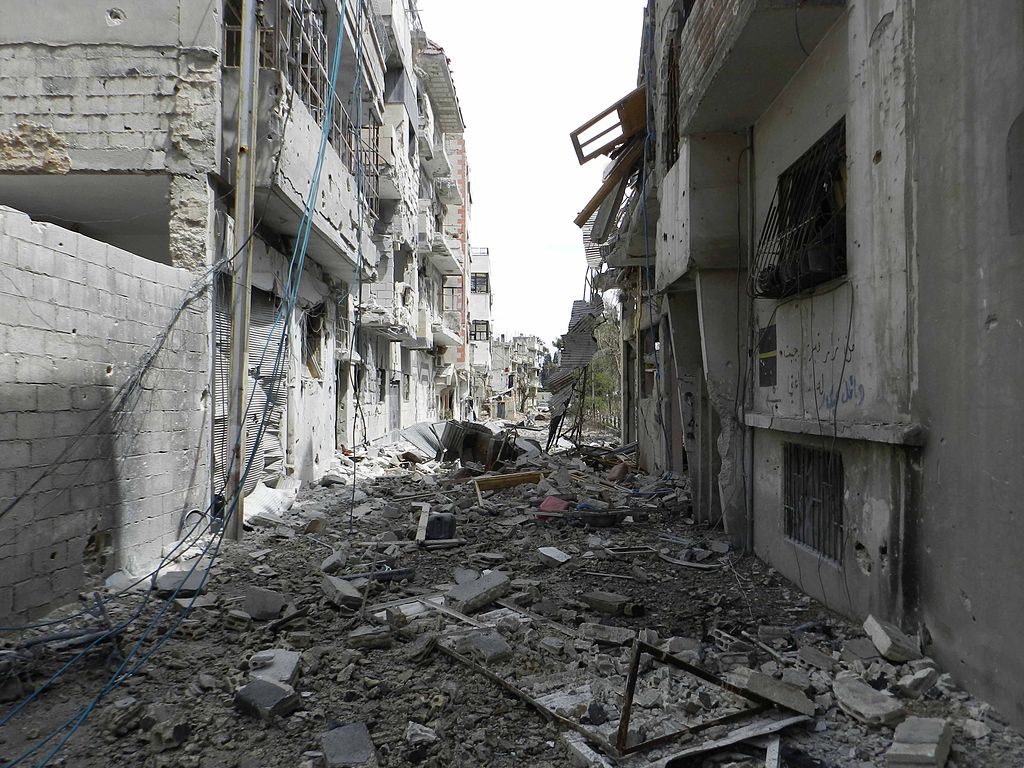
One of the complications of telling martyr stories is that they can deepen current divisions and animosities.
In a letter sent to Mennonite educators and historical societies in January of this year, representatives from Mennonite World Conference acknowledged that the way we tell and remember stories of costly discipleship from within our tradition has an impact on ecumenical and interreligious relationships today.
In the context of the Lutheran-Mennonite dialogues that took place from 2006 to 2010, church leaders were challenged to make “an effort to retell the history of our beginning—as Lutherans and Anabaptists—in such a way that both sides could affirm.” Even as they offered forgiveness to Lutherans for the treatment of their Anabaptists forbearers, representatives of MWC also confessed the ways that Mennonites and Brethren in Christ have perpetuated “memories of hostility.”
When stories of suffering and persecution are ‘glorified’ a clear villain usually emerges—whether it be the Lutherans, Catholics, or government officials—making reconciliation extremely difficult and even impossible.
As followers of Jesus one of our deepest callings is to foster reconciliation wherever we can, even in our storytelling. As the Bearing Witness Stories Project develops, we hope that the stories collected here can both honor the suffering and faith of the ‘persecuted’ while yet recognizing the humanity and need of the ‘persecutors.’
Three weeks ago Jesuit priest Father Frans van der Lugt was shot by an unknown gunman in front of the church he pastored in Homs, Syria, a city that has been the site of destructive fighting between the Syrian government and the opposition.
Although originally from the Netherlands, Father Frans had lived in Syria since 1966 and notably refused to leave when the United Nations facilitated the evacuation of 1,500 people from the Old City in Homs in January of this year.
Father Frans is widely being hailed as a martyr, but the way he is being remembered by Syrians defies the seductive categories of victim and villain and can be instructive for us as we reflect on the shape of our own remembering.
In an interview with the Catholic News Agency, Syrian Catholic Christian Wael Salibi reflected on the meaning of Father Frans’s death and life.
Salibi remembers that Father Frans focused on the reconciliation of Christians and Muslims within his own city and sought to bring together people of different backgrounds: Christians and Muslims, Syrians with disabilities and those without recognized disabilities, etc.
When war began in 2011 Father Frans welcomed both Muslims and Christians into the church and shared food with them. He is remembered as saying, “I didn’t come to Syria to help just Christians.”
Salibi noted that Father Frans’s reconciliation work and his refusal to leave Homs did not go unnoticed by his neighbors.
“He stayed there,” said Salibi. “And he stayed there in the ending before he died just with 24 Christians, he didn’t leave them, and when he died, the Muslim people were sad more than the Christians in that neighborhood.”
Salibi also emphasized how people in Homs have responded to Father Frans’s death without vengeance.
People “didn’t think about who killed him,” said Salibi, “they thought about sadness and accepted the love because of the teaching of Fr. Frans, who taught them don’t hate, don’t take revenge, and death is not the ending, it’s just passing to be with God. So that’s what we learned from him.”
Significantly, Salibi reminds others to focus on the peace and reconciliation that was at the center of Father Frans’s life, rather than on his death and manner of dying.
Father Frans would want his death to remind those “who are used to this war in Syria and everyday death…” says Salibi, “how important [it is] to try everything [we] can do to stop this war, this tragic war. And especially in a very peaceful way,” and to “forgive.”
“We don’t want any war in Syria, we don’t want more war,” he said, “we just want to say everyone push for peace. To make this peace.”
Salibi remembers the words that Father Frans wrote a few months before his death: “We love to live. We don’t love to die. We love to live. We have (the) right to live a normal life.”
For Salibi, Father Frans’s death is not the point, although it is certainly a source of grief and a sign of the injustices of Syria’s conflict. Instead Salibi tells Father Frans’s story in such a way that a larger purpose and calling emerges from the tragedy.
It is an example of “right remembering” that can inspire us as we retell the stories of those who have suffered for their faith within our own tradition.